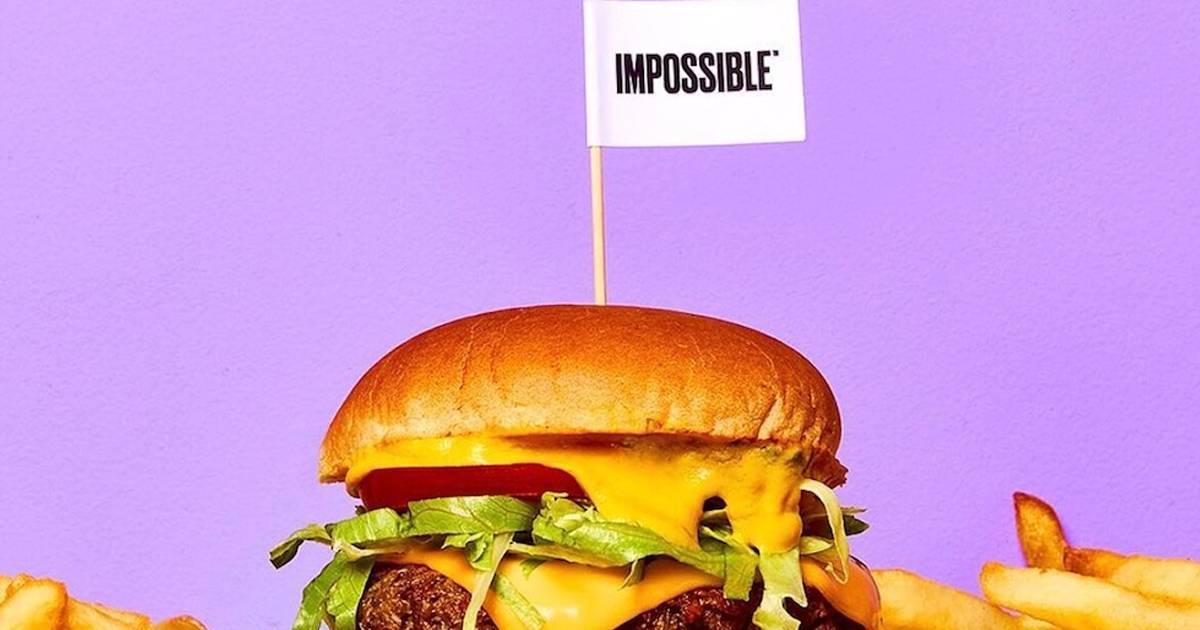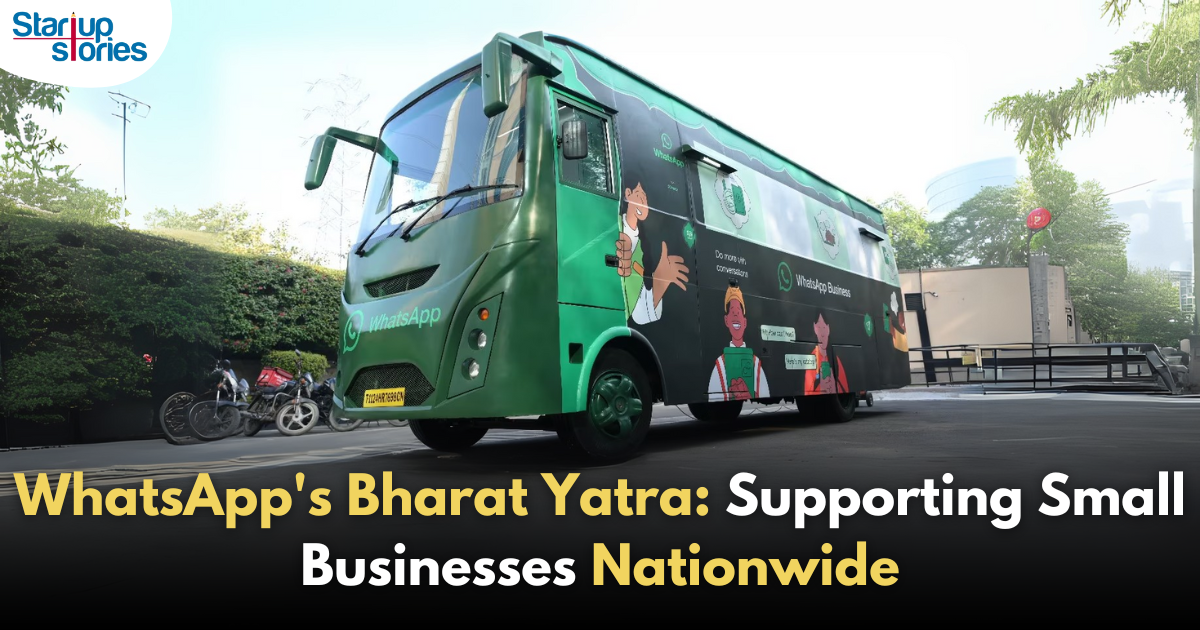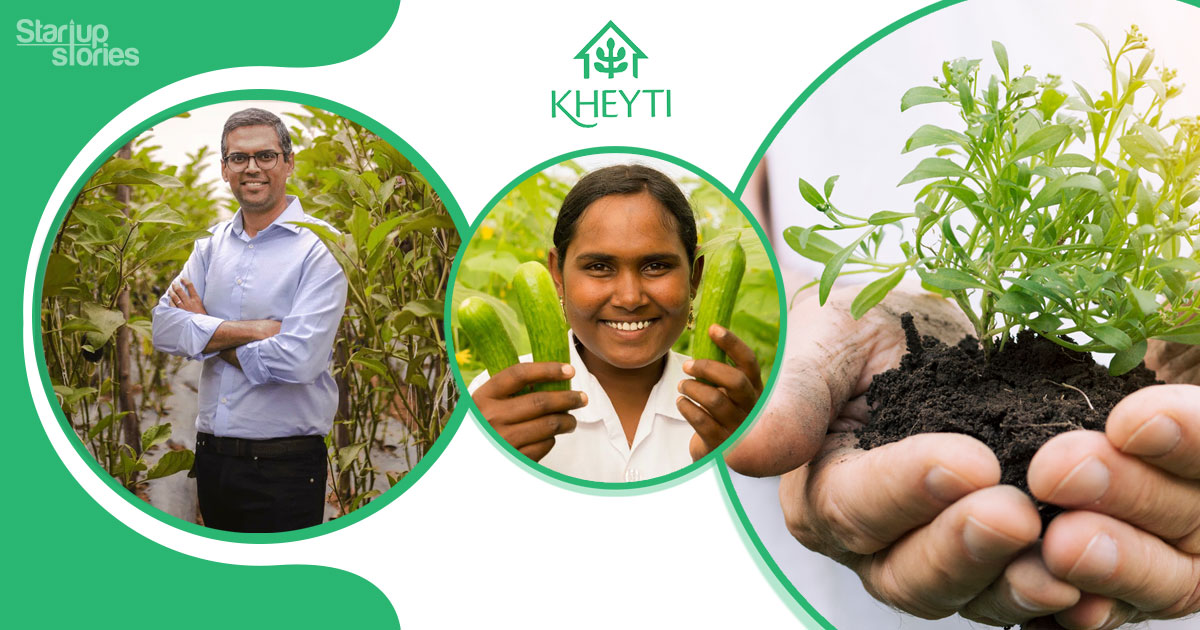Emerging Startup Stories
Impossible Foods – Achieving The Impossible With Plant Based Meat

Plant based meat is an oxymoron in every way, yet a startup called Impossible Foods Inc. is doing just that. They successfully created a plant based meat which looks, feels, smells and tastes like actual meat. This is no easy feat and it required years of research and development to come up with a product like this.
The world is seeing increasing greenhouse emissions every year and it adversely affects the climatic conditions throughout the world. Cattle and livestock make up for 10 % of greenhouse gases and in the United States of America alone, countless amounts of water and land is used to breed cows.
Beginnings
Impossible Foods was founded by Patrick Brown in 2011. Patrick Brown is a renowned personality in the field of microbiology and holds a Ph.D. As a pure vegetarian and having cut dairy from his diet, Patrick Brown set about to think what the largest environmental problem is and settled down on the production of meat from cattle. He held a conference to raise awareness about the issue, only to have it make minimal impact. It was then Patrick realised the need to offer a competing product on the free market.
Patrick Brown then immersed himself in research about what makes meat endearing as food and began to develop a process which isolates compounds that make meat feel like meat. After attracting an initial investment from venture capitalists, he started his venture Impossible Foods Inc.
How Impossible meat is made
After a few years of research, Patrick Brown realised the key to the unique taste of meat was the availability of ‘heme,’ an iron based molecule present in abundance. Patrick and his team then set out to search for the availability of heme in plants and found it is present in soy plant roots.
Patrick Brown figured out a way to isolate this heme from soy plants and inserted them into a yeast which replicated the heme compound. This method cut down costs in terms of land and cultivation of soy plants to extract the heme compound. After this, the team decided they need to replicate the flavour, texture, smell and taste of a beef patty and decided to engineer it from scratch.
Impossible Foods employed the use of a mass spectrometer to isolate smells which made a cooked patty delicious and replicated the same in their Impossible patty. Coconut oil chips, with the coconut flavour extracted, were used to replicate fat which melted upon heating the patty. Potato protein was used to replicate the effect which meat undergoes when it is being cooked and for the taste, Impossible Foods turned to the heme. This patty was used to create the Impossible Burger and the makers claim it has very less total fat, no cholesterol and fewer calories than a normal burger.
Growth of Impossible Foods
Upon the development of the Impossible Burger, it made its debut in the Momofuku Nishi restaurant, which is owned by David Chang in New York. Since then, it has featured on the menus of Michelin star restaurants. Burger chains like Bareburgers, Umami Burgers and Whitecastle added the Impossible Burger to their menu. Since the release of the Impossible Burger, Impossible Foods has worked to refine the Impossible Burger patty to more closely match an actual meat patty and they came up with the Impossible Burger 2.0.
Upon the launch of the Impossible Burger 2.0, Burger King did a test sale in select restaurants by offering the Impossible Burger on their menu and it was a success, which led to it becoming a standard offering on Burger King menus of all their locations in the United States of America. This demand led Impossible Foods to increase their production capacity to one million pounds a month.

Impossible Foods is now planning to expand their product range and conducting research to further their offerings. While Impossible Foods is trying to achieve the impossible, the technology they use in their development process will definitely find its use in the future if land and water become precious commodities due to unchecked global warming trends.
Read About how this startup is making furniture out of fungus: Ecovative Design: A Startup Providing Sustainable Alternatives To Plastic
Emerging Startup Stories
WhatsApp’s Bharat Yatra: Empowering Small Businesses Across India!

WhatsApp has embarked on a nationwide initiative called Bharat Yatra to empower small and medium businesses (SMBs) across India. This innovative mobile bus tour aims to provide hands-on training and support to help businesses leverage the power of digital technology, particularly through the WhatsApp Business app.
Key Focus Areas
- Digital Skill Enhancement: The Bharat Yatra program is designed to equip SMBs with essential digital skills necessary to thrive in the digital age. This includes training on how to effectively navigate the digital landscape and utilize online tools for business growth.
- WhatsApp Business App Training: Participants will learn how to use the WhatsApp Business app to connect with customers, share product catalogs, and manage inquiries efficiently. This training is crucial for businesses looking to enhance customer engagement and streamline communication.
- Latest Features and Updates: The tour will highlight the latest features of WhatsApp Business, including Meta Verified, which enhances business credibility, and custom messaging options that allow for personalized communication with customers.
- AI Integration: Businesses will also be introduced to the potential of Meta AI integration, which can streamline customer engagement processes and boost overall productivity. This aspect of the training aims to familiarize SMBs with advanced tools that can enhance their operational efficiency.
Tour Details
The Bharat Yatra will kick off its journey in Delhi-NCR, visiting bustling markets such as Laxmi Nagar, Rajouri Garden, and Nehru Place. Over the coming months, the bus will cover key business hubs in cities like Gurugram, Noida, Agra, Lucknow, Indore, Ahmedabad, and others. Each stop will feature interactive demos, expert guidance, and personalized support tailored to the unique needs of local businesses.
Impact on the Indian Economy
By engaging directly with businesses across major cities, WhatsApp aims to create a tangible impact on the Indian economy. The initiative aligns with WhatsApp’s broader goal of supporting small businesses and fostering digital growth in India. According to Ravi Garg, Director of Business Messaging at Meta India, “Small businesses are the backbone of India’s economy, and with the right digital tools, they have the power to supercharge the country’s digital transformation.”
Conclusion
As the Bharat Yatra continues its journey across India, it is expected to empower thousands of SMBs, contributing significantly to India’s economic development and digital transformation. By providing essential training and resources, WhatsApp is not only enhancing business capabilities but also reinforcing its commitment to fostering a robust small business ecosystem in India. This initiative builds on previous efforts such as WhatsApp Se Vyapaar, which aimed to upskill millions of traders, further demonstrating WhatsApp’s dedication to supporting India’s entrepreneurial landscape.
Emerging Startup Stories
Discover Kheyti, The Startup Changing The Lives of Farmers In India

Farming has been an integral part of India’s history and culture for ages. It’s been the foundation of the Indian economy, supporting millions of people with food and jobs. Crops and agriculture hold immense importance in Indian society, not just in terms of money, but also in terms of culture, community, and spirituality.
Farming is a way of life for many people in India, but it can be a difficult and unpredictable business and farmers face a number of challenges, from erratic weather patterns to low market prices for their crops. Kheyti is a social enterprise founded in 2015 by Saumya, Kaushik Kappagantula, and Sathya Raghu. The organisation provides sustainable solutions to small farmers in India, helping them overcome challenges and improve their lives.
Kheyti’s flagship product is the “Greenhouse-in-a-Box,” a low-cost modular greenhouse that allows farmers to grow high-value crops year-round, even in unfavourable weather conditions. operates on a subscription-based model, where farmers can purchase a “Greenhouse-in-a-Box” kit or sign up for crop advisory services on a monthly or annual basis. Kheyti.com also earns revenue by connecting farmers with markets and buyers, taking a small commission on sales. They work to keep the costs low by partnering with local manufacturers to produce their products and leveraging tech to provide personalised crop advisory services at scale.
They also provide crop advisory services to farmers, offering personalised advice on crop selection, planting, and management. In total, The company has helped over 6,000 small farmers increase their incomes by an average of 300%. You call them small farmers, Kheyti calls them Smart farmers!
While there are other companies in India that offer similar solutions to small farmers, Kheyti stands out for its focus on sustainability, innovation, and community involvement. It works closely with farmers to develop tailored solutions that meet their needs while focusing on sustainable farming practices. Through its efforts, Kheyti has improved soil health, reduced water usage, and increased yields of various crops.
Looking ahead, Kheyti plans to expand its reach to more farmers in India and beyond and aims to continue developing new products and services that can help small farmers overcome the challenges they face. With its commitment to sustainability and innovation, The visionaries at Kheyti claim it has the potential to transform the agricultural sector and contribute to a more equitable future for all.
Imagine the joy and hope Kheyti brings to struggling farmers in India. With Kheyti’s help, over 6,000 small farmers have transformed their lives, becoming Smart farmers who handle challenges and succeed. With sustainable solutions, Kheyti is not only revolutionising agriculture but also spreading hope for a brighter future.
Emerging Startup Stories
Suki: This Startup Wants To Transform Healthcare With Its Artificial Intelligence Tool

We live in a rapidly transforming era where humanity is making exponential leaps in technology. Thirty years ago, no one would have believed you could talk to an online voice assistant to create tasks and get things done. Ten years ago, no one would have believed humanity would land robots on Mars. Technology truly has improved the quality of living of every human who owns a smartphone and has access to an internet connection. Voice assistants are slowly replacing manual tasks and making lives easier and efficient. Siri, Alexa, Google Voice Assistant are just some of the widely used artificial intelligence based tools which are employed on a daily basis. Artificial intelligence, which is hailed as the technology of the future is now slowly making its way into much more complex domains like self driving vehicles, quantum computing and also health care.
Suki, a United States of America based startup founded by Punit Soni, developed their own voice assistant which runs on artificial intelligence to simplify healthcare for doctors and other healthcare professionals. In simple terms, Suki is akin to Siri for doctors. While you could order a pizza or schedule an appointment on Siri, doctors could modify, edit and add health records of their patients. Suki is a powerful tool to help doctors with documentation of health records which often take hours of their (doctors) time.
Suki currently focuses on documentation but has the potential to expand its usage to data queries, ordering, prescribing and billing. According to a white paper published by Suki, using its technology increases the time a doctor spends with a patient by 12% by cutting note taking time by 76%. The time which is saved also brings in a financial benefit of $30,000 more in revenue a year on average for doctors.
Suki raised a $ 20 million Series B round from Flare Capital Partners, First Round Capital, and Venrock, doubling its total funding to $ 40 million since its 2017 launch. Suki is also looking to expand its reach in India and has decided to establish Bangalore as their base of operations. India holds a lot of potential for Suki considering the amount of manual work which goes into almost any sector.
It would be interesting to watch how Suki and other similar AI based startups would transform healthcare across the world.













spo3h
June 5, 2025 at 3:46 pm
cost cheap clomiphene online generic clomiphene price where to buy clomiphene tablets can i buy generic clomiphene no prescription buy clomiphene price can you buy cheap clomid for sale cost of cheap clomiphene without rx
GO88
November 7, 2025 at 10:20 pm
Tham gia cộng đồng game thủ tại Go88 để trải nghiệm các trò chơi bài, poker phổ biến nhất hiện nay.
谷歌站群
November 9, 2025 at 8:51 pm
专业构建与管理谷歌站群网络,助力品牌实现全域流量的强势增长。谷歌站群
谷歌外推
November 12, 2025 at 6:42 am
采用高效谷歌外推策略,快速提升网站在搜索引擎中的可见性与权重。谷歌外推
Kuwin
November 16, 2025 at 9:34 am
kuwin sở hữu kho game đa dạng từ slot đến trò chơi bài đổi thưởng, mang đến cho bạn những giây phút giải trí tuyệt vời.
MM88
November 20, 2025 at 3:52 am
Khám phá thế giới giải trí trực tuyến đỉnh cao tại MM88, nơi mang đến những trải nghiệm cá cược thể thao và casino sống động.
MM88
November 21, 2025 at 3:50 pm
Với giao diện mượt mà và ưu đãi hấp dẫn, MM88 là lựa chọn lý tưởng cho các tín đồ giải trí trực tuyến.
iwin
December 1, 2025 at 11:14 am
iwin – nền tảng game bài đổi thưởng uy tín, nơi bạn có thể thử vận may và tận hưởng nhiều tựa game hấp
NV Casino aktueller Bonus mit 225 Freispielen
December 20, 2025 at 6:58 pm
Damit Sie wirklich verstehen, wie der no deposit Bonus im Online-Casino
funktioniert, habe ich meine Erfahrungen und Tipps
in einem kleinen Guide zusammengefasst. Über 9.000 Spiele, High-Roller-Bonus
bis zu 3.000 € + 200 Freispiele, tägliche Bonus-Show Ihr Risiko ist minimiert, sodass Sie kein eigenes Geld einzahlen müssen, um den Bonus ohne Einzahlung zu erhalten. Nein, nicht jedes Casino verwendet solche Codes für exklusive Bonusangebote.
Mit Hilfe eines solchen Bonusangebots kann man die Seiten nämlich risikolos testen, weil man kein eigenes Echtgeld einsetzen muss und
dabei dennoch gewinnen kann. Du nöchtest wissen, wie man sofort einen gratis Willkommenbonus mit Startguthaben erhält?
Waltenberg hat Tausende von Online-Casinos, Spielautomaten und Casinospielen überprüft und verfügt
über fundierte Kenntnisse zu Boni und Spielautomaten.
Du kannst mit einem Promo Code Casino Freispiele oder andere tolle Prämien erhalten. Die Codes sind
für die Glücksspielanbieter eine gute Möglichkeit, Neukunden zu gewinnen. Bonuscodes für Online Casinos lassen sich normalerweise problemlos
für das Spielen mit Smartphone oder Tablet verwenden.
Das Casino hätte ausschließlich einen Verlust mit der Werbeaktion gemacht.Durch diese Werbeaktionen versuchen neue Online Casinos und Spielotheken ebenfalls neue Kunden für sich zu gewinnen und diese an sich zu binden. Würde ein Casino einen Anmeldebonus oder geschenktes Bonusguthaben nicht an solche Umsatzbedingungen knüpfen, wäre das ein denkbar schlechtes Geschäft für das Casino.
Und diese Bonusbedingungen fallen bei einem Casino Bonus
ohne Einzahlung oftmals wesentlich umfangreicher aus,
als bei einem klassischen Einzahlungsbonus.
References:
https://online-spielhallen.de/kings-casino-deutschland-dein-online-glucksspiel-erlebnis/
instant casino sites
December 27, 2025 at 7:53 am
Surprise us with your incredible game and get into our closed community.
Entering our website you will immediately feel the atmosphere
of an authentic casino. Also, by hovering over the game with your mouse, and clicking the star, add this game
to your favorites. You can also find any game by its name using the search function.
As written above, if you want to gamble for real money and claim your Welcome Bonus, you will have to register.
Our website is completely legal for Casino Mate Australia players.
Thus, you can be sure no one will interfere with your gameplay.
Mate Casino regularly releases new games and makes sure that everyone is satisfied!
All games at Casino-Mate are available to
play for free in practice mode, or for real money bets.
The new and improved Casino-Mate platform is available entirely for instant-play, so you
can load games directly over your Web browser (mobile or
desktop) without having to download a thing. Casino-Mate offers plenty more incentives to reward players for their loyalty, with
several bonuses and promos available beyond the sign-up package.
Casino-Mate has been one our top-rated online casino sites for years
now, and its recent shift onto a new multi-provider platform away from the old Microgaming format has given this online casino a breath of fresh air.
Gambling at Casino-Mate is legal and legitimate for players in countries where online gambling is legal,
and sign ups can rest assured their money is secured by industry legislation. This is
a fully secure, professional online casino that truly cares about its players and sets high standards for the virtual casino industry.
References:
https://blackcoin.co/spanish-21-rules/
casino account login issues
December 27, 2025 at 8:19 pm
This huge gaming and entertainment arena is Melbourne’s primary gaming destination. All rooms and suites
are non-smoking and offer the latest touch screen technology, 24-hour guest
service and access to the resort pools and gymnasium.
With everything you need for an unforgettable stay, from family-friendly entertainment at the Metropol
Precinct to fine dining restaurants and bars
at your doorstep, Crown Metropol is designed so you’ll never want to leave.
Our in-house retailer offers a range of luxury Crown products available
for purchase, including a select range of Crown linen and At Home products.
Whether you’re here for a weekend getaway or an extended stay, The Sebel offers a refined, comfortable experience.
Discover boutique luxury at The Sebel Canberra, where contemporary style
meets exceptional service.
Perodua opted for a low-slung MPV with a car-like ground clearance of 160
mm (150 mm for X, old Alza was 155 mm). The Veloz headlamps are bridged by a chrome
strip that tops the grille – these continue on the sides of the
bonnet to reach the windowline, and the chrome outline terminates at the rear screen. Speaking of LEDs, the LED headlamps are different and the Toyota gets LED daytime running
lights (LED DRLs for the Alza come with the optional GearUp bodykit).
The grille inserts are also different –
it’s ‘L’ for the Alza and ‘Y’ for the Veloz, which gets T-shaped chrome accents around the LED fog lamp surrounds.
The Veloz is of course a sister car to the recently-launched Perodua Alza, and both are
manufactured by Perodua in Sg Choh, north of the
Klang Valley.
This is the benefit of the car-like underpinnings and will mean that those used to the outgoing car won’t have such a jarring transition to
the new one. A recent render by Photoshop expert Theophilus
Chin – who claims to have based it on leaked information – shows a rather
aggressive front end with large air intakes and a fairly
slim grille. The exterior of the Toyota is characterised by the boxier, more modern exterior with slim
LED head- and taillights, a chiselled shoulder, squared-off front and rear fender flares and a cut-off D-pillar that
gives the car a “floating roof” look. The other national MPV will be much longer
(by 215 mm) and wider (by 59 mm), although its more car-like nature means it will
be nine millimetres lower than the SUV-lookalike Alza; it will also be 20 mm shorter in wheelbase.
References:
https://blackcoin.co/casino-crypto-first-online-casino-review/
http://ptshop.co.kr/bbs/board.php?bo_table=free&wr_id=1327
December 29, 2025 at 12:06 pm
online casino for us players paypal
References:
http://ptshop.co.kr/bbs/board.php?bo_table=free&wr_id=1327
jobsonly.in
December 30, 2025 at 2:36 pm
australian online casinos that accept paypal
References:
https://jobsonly.in/employer/best-welcome-bonuses-at-online-casinos-australia-in-2025/